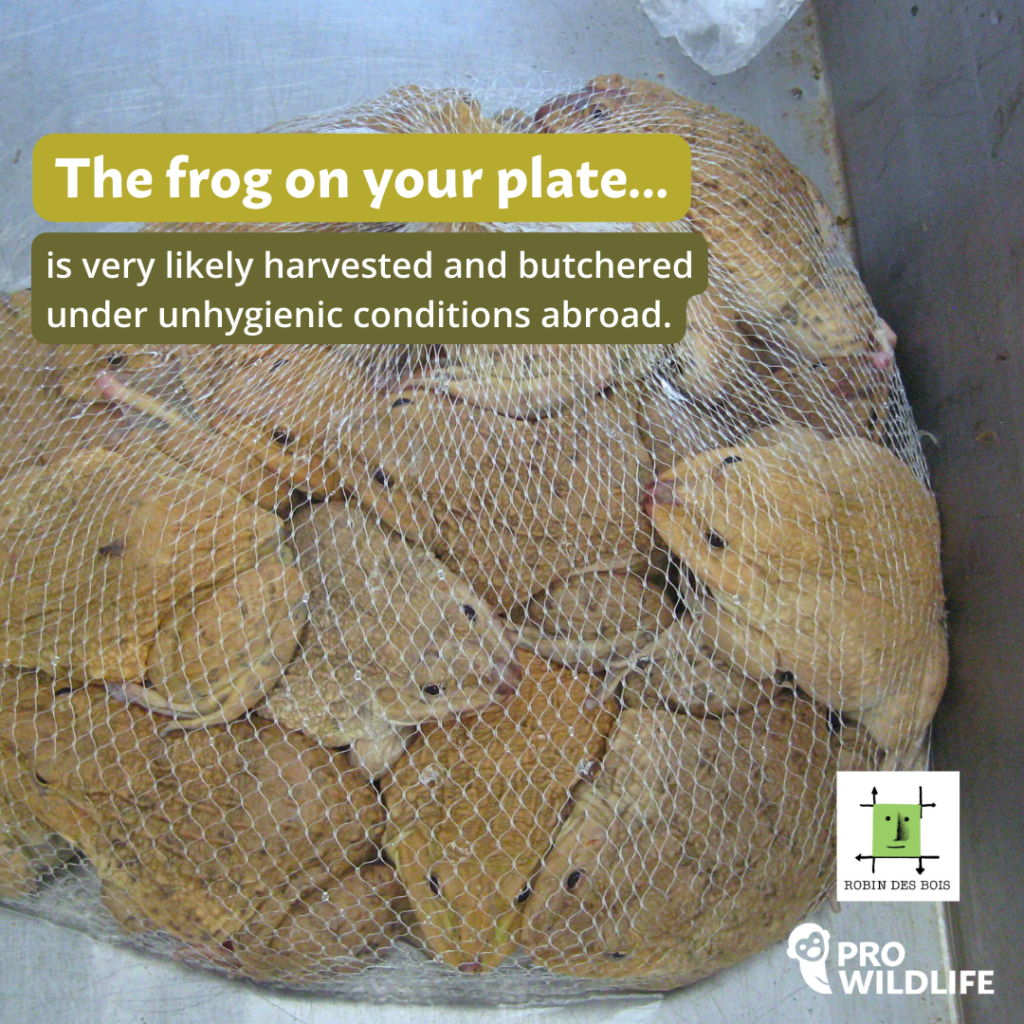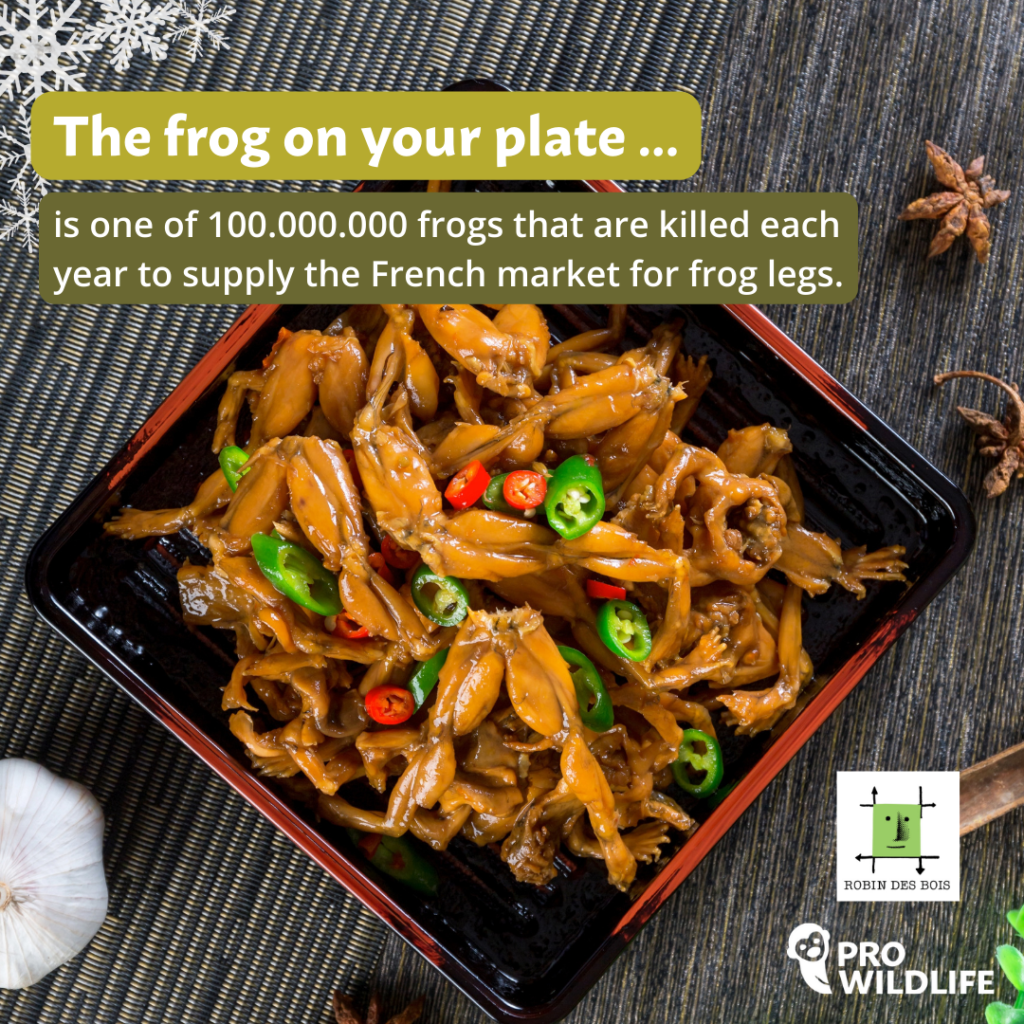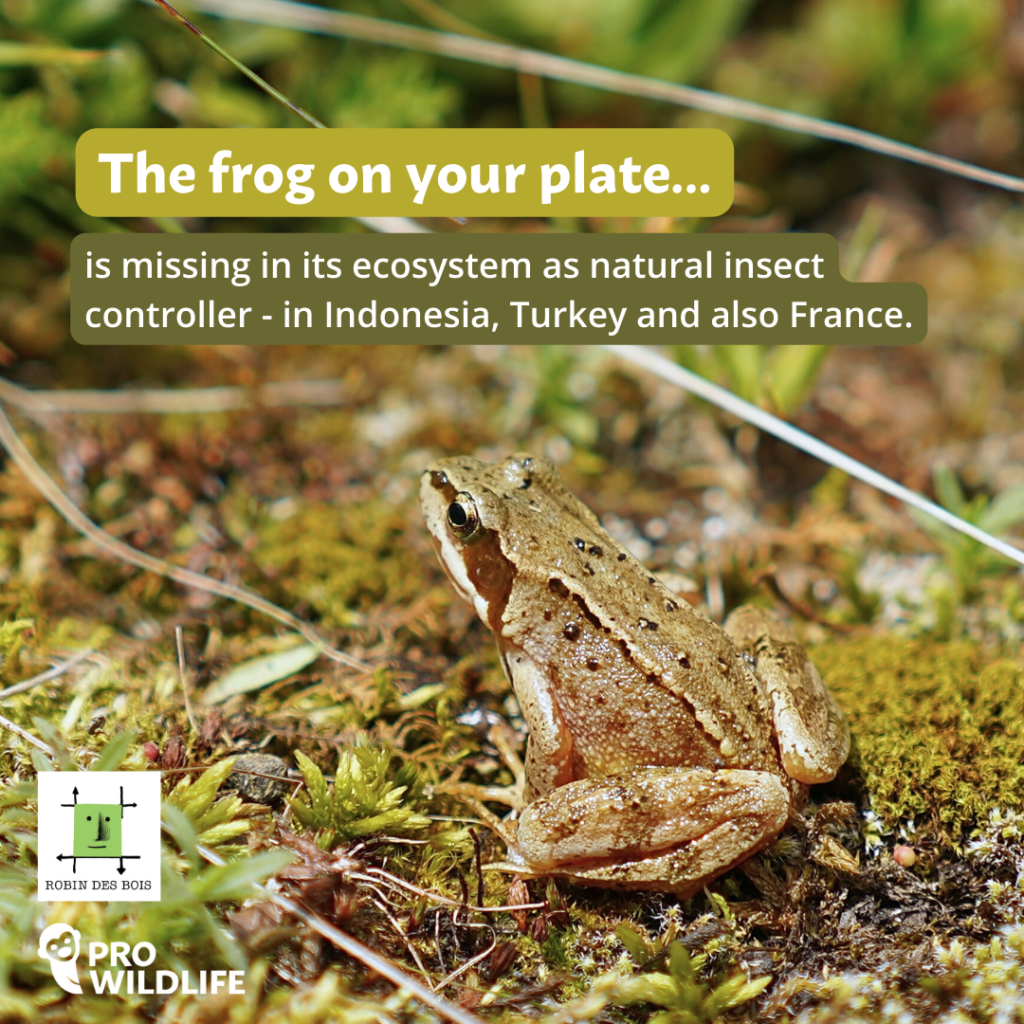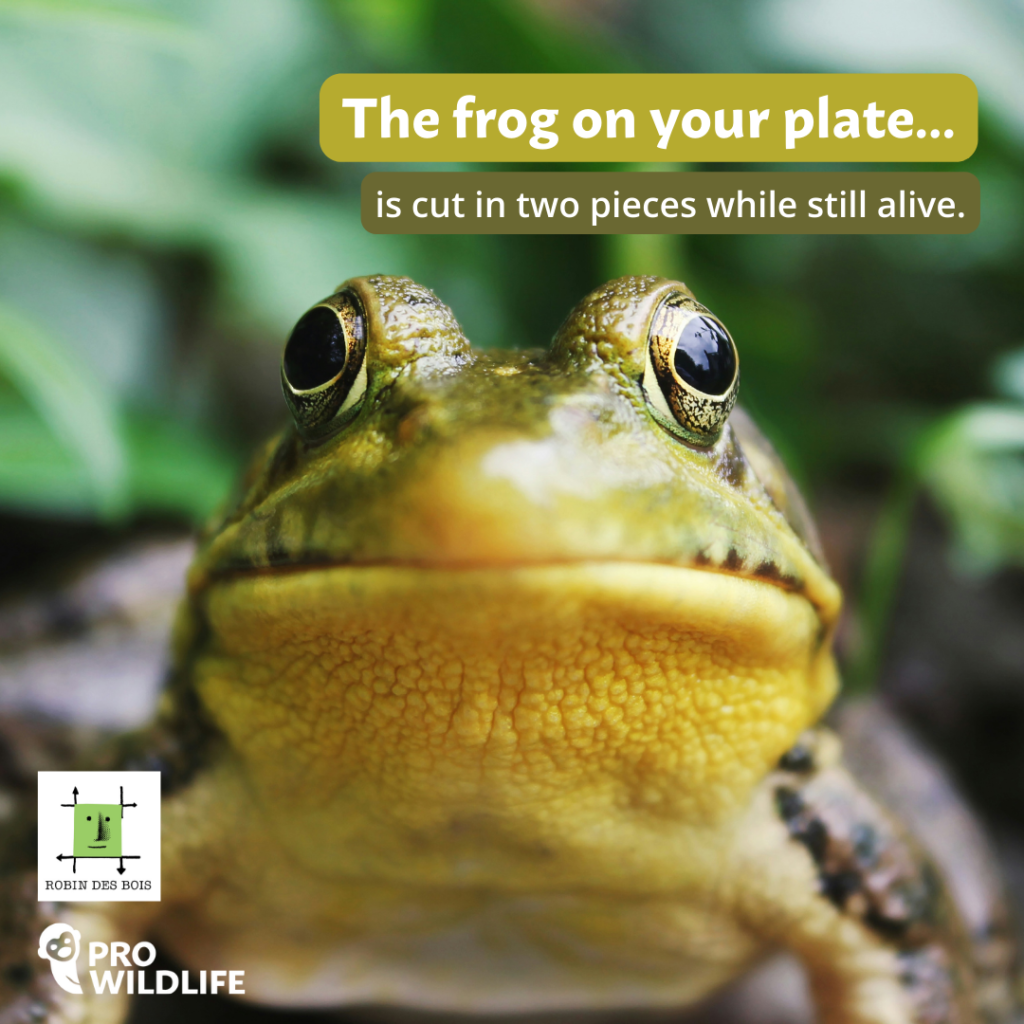Social media campaign warns of serious environmental problems caused by France’s Christmas consumption peak
Paris / Munich / December 4, 2023 – In the run-up to Christmas, the French based organisation Robin des Bois and the German based organisation Pro Wildlife have launched a joint information campaign on social media to highlight the origin of the millions and millions of frogs’ legs being annually consumed. “French consumers believe the frogs on their plate come from nearby ponds and swamps. Instead, the vast majority is caught in the wild in far distant countries” underlines Charlotte Nithart, president of Robin des Bois. Biologist Sandra Altherr from Pro Wildlife adds: “Our campaign illustrates the many problems associated with a dish that is consumed carelessly but causes an ecological disaster and millions of animal suffering. Where frogs are missing as a natural insect control, the use of pesticides increases.”
France is by far the biggest consumer of frogs’ legs in Europe
According to a study by Pro Wildlife and Robin des Bois, the European Union imports an average of 4070 tonnes of frogs’ legs each year – the equivalent of 80 to 200 million frogs, depending on their size. “Our analysis showed that France alone imports a total of more than 3000 tonnes annually, 80% of which comes from Indonesia, 13% from Vietnam, 3.4% from Turkey and just under 1% from Albania. European rules concerning consumer information on the species sold and the country of origin are often flouted,” Nithart reports. “It’s absurd: the frogs that occur in nature here in Europe are protected under EU law. But the EU still tolerates the catch of millions of animals in other countries – even if this threatens the frog populations there. This is not at all in line with the EU’s biodiversity strategy.” criticises Altherr. The imported frog species are not yet covered by the Convention on International Trade in Endangered Species of Wild Fauna and Flora (CITES) and therefore trade is neither monitored nor regulated.
New campaign “The frog on your plate…”
The social media campaign is informing consumers in France, especially in the run-up of Christmas, which is a peak season of frogs’ legs consumption. The four key messages are:
- “The frog on your Christmas plate is one of the 100,000,000 frogs that are killed each year to supply the French market for frogs’ legs.” Nowadays, the vast majority of frogs are coming from faraway countries: More than 84% of the frogs consumed in France are caught from the wild in Indonesia, Turkey and Albania. The French market is marginally supplied by grass frogs. This species is protected in France but numerous exemptions are granted.
- “The frog on your Christmas plate is missing in its ecosystem as natural insect controller – in Indonesia, Turkey and also France.” France is annually importing the legs of 100.000.000 frogs – frogs that otherwise would have eaten tons of insects, including mosquitoes carrying vector-borne diseases. Wherever frogs have been removed, there are plagues of insects and farmers are using more pesticides. This had happened in India and Bangladesh in the 1980s, before both countries banned frog exports. History is repeating and scientists already warn that large-bodied frogs in Turkey might become extinct until 2030.
- “The frog on your Christmas plate is cut in two pieces while still alive”. Killing of 100 million frogs a year just for the French market means cutting up the still-living frogs with scissors, axes or knives – all in piecework.
- “The frog on your Christmas plate is very likely harvested and butchered under unhygienic conditions e.g. in Indonesia.” Consumers in France favour locally produced food and expect high standards of hygiene. In reality, however, frogs comes from polluted ponds and rice fields contaminated with pesticides. Upon arrival in Europe, they are irradiated with Cobalt 60 to eliminate as many toxic germs as possible.

Pro Wildlife and Robin des Bois call on consumers to ban frog legs from their festive menus and for a stop to EU imports: “In the EU, such a nature looting coupled with such cruel killing methods would not be allowed, so the logical consequence must be to stop imports.”
Further information:
- Report “Deadly Dish – role and responsibility of the European Union in the international frogs’ legs trade” (June 2022, pdf, English).
- “The case of France” – Extract from the report (in French, pdf).
- Study (2023): The European Market Remains the Largest Consumer of Frogs’ Legs from Wild Species.
- Study from Turkey (2020): Unsustainable harvest of water frogs in southern Turkey for the European market (Cambridge University Press).
- “Frog Fair” in Vittel: Fast Food, Fast Extinction, (April 17, 2023) press release.
About Pro Wildlife
Pro Wildlife is a non-profit organisation working to protect wildlife and their habitats worldwide. Our goal is to preserve biodiversity and save animals. In doing so, we care about the survival of species in their habitats, but also about the protection of individual animals. We campaign for better laws and effective protection measures for wildlife. In various countries, we support aid projects for animals in need, help to preserve habitats and advocate for the coexistence of humans and wildlife.
About Robin des Bois
Robin des Bois is a non-profit NGO founded in 1985. It’s objective is the protection of Man and the Environment through research and non-violent action. Robin des Bois carries out field investigations and regularly participates in a dozen institutional consultation groups and international conventions. Since 1988, it was granted observer status at the Convention on International Trade in Endangered Species of Wild Fauna and Flora (CITES) and the International Whaling Commission (IWC). Since 2013, Robin des Bois has published an information and analysis bulletin on animal poaching and smuggling (“A la Trace” in French, “On the Trail” in English), a useful tool for institutions and NGOs fighting wildlife crime around the world.
 Imprimer cet article
Imprimer cet article












